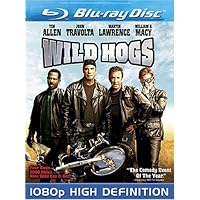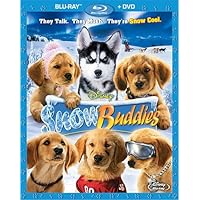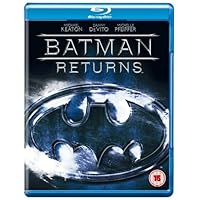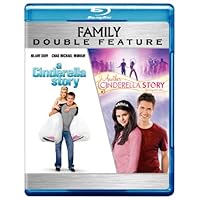
After the technically accomplished but ultimately hollow thriller Panic Room (3-Disc Special Edition), director David Fincher returns to familiar subject matter with Zodiac, a dramatization of the murders perpetuated by the infamous serial killer known as Zodiac that terrorized the San Francisco Bay area in the late 1960s and early 1970s. With Seven (New Line Platinum Series), Fincher seems like an obvious choice to direct this film but those of you expecting a rehash of that film will be disappointed. With Zodiac, he faces the daunting challenge of making an exciting thriller that runs two hours and forty minutes long where the killer was never caught. He does this by focusing on the people who investigated the case and how it affected them.
This is a film that shows people talking and doing research hardly, dynamic, cinematic material but Fincher makes it fascinating with strong performances from his talented cast and a solid screenplay to anchor the film. Like Michael Mann's equally obsessive serial killer movie, Manhunter (Restored Director's Cut Divimax Edition), Fincher spends a lot of his movie showing offices buzzing with activity as the case heats up and we see people hard at work as the police, FBI, the Chronicle and even the CIA all try to decipher the Zodiac's code and solve the case. He also show the minutia of their methods while also reminding us of the limits of technology at the time (no personal computers, no internet, no DNA testing, etc.). These people faced a monumental task of sifting through hundreds of false leads and crank calls from the substantial information that might actually further the case.
Zodiac presents a wealth of information and invites you to sift through it like the three protagonists. In fact, there is so much to absorb that repeated viewings will undoubtedly reveal more details that might not have been caught upon an initial viewing. The film's long running time allows you to gradually immerse yourself in the film and the story it tells. However, it never feels too long because Fincher maintains a brisk, efficient pace cramming as much detail and information as he can into every scene. The killer is a fascinating enigma and his encrypted letters, his blatant taunting of the police, and the discrepancies between murders only it makes it more interesting. It is easy to see why people became obsessed with this case. Ultimately, the Zodiac case doesn't just leave a trail of actual bodies but also collateral damage in the form of failed marriages, ended partnerships and substance abuse. And this is just the people who investigated the case. The toll taken on the victims who survived, their families and those of the people who were killed is inconceivable. A whole other movie could be made about them. Fincher has made a smart, engaging thriller that suggests a new direction for the filmmaker, one that places an emphasis on character and story instead of atmosphere and set design.
Last year, Paramount released an obligatory bare bones DVD and in the meantime, Fincher and DVD producer extraordinaire, David Prior have assembled an in-depth two-disc special edition that covers all aspects of the production. The director has also added five minutes back into the film that improves on an already great motion picture.
The first disc features an audio commentary by director David Fincher. He touches upon the "oddly personal" period details as much of the film takes place during his childhood and around areas he lived. This also informed the period songs he picked for the film. This is the kind of engaging, informative track we've come to expect from Fincher.
Even better is the second commentary by actors Jake Gyllenhaal and Robert Downey Jr., producer Brad Fischer, screenwriter James Vanderbilt, and crime novelist James Ellroy. Fischer and Vanderbilt talk about how closely they stuck to the actual facts of the case and delve into its details. Ellroy, a self-proclaimed fan of the film, does his entertaining Demon Dog of crime fiction persona that fans of his love while also talking about the film's place in crime fiction. Downey and Gyllenhaal provide all kinds of anecdotal information with Downey displaying his trademark dry sense of humour.
The second disc is broken up into two sections: extras dealing with the film and ones dealing with the actual Zodiac murders. "Zodiac Deciphered" is an hour-long documentary on the making of the film. Producer Brad Fischer and screenwriter James Vanderbilt talk about the origins of the project. We see how each of the film's key locations were faithfully recreated, often shooting at the place where one of the murders took place. Period costumes were authentically recreated from police reports and evidence photographs. When actual locations could not be used, the San Francisco Chronicle offices, they were built from scratch on a soundstage. Fincher nailed the newspaper office down to the tiniest details like vintage rotary phones, typewriters, etc. There is plenty of on-the-set footage that shows Footage and co. at work.
"The Visual Effects of Zodiac" takes a look at how CGI was used not only to recreate certain period details of San Francisco but also the blood in the murder scenes. We see before and after comparison shots and it is incredible how seamlessly the effects are integrated into the film.
The "Previsualization" for three scenes compares the computer animated storyboards with the final product in the film.
Also included is a theatrical trailer.
"This is the Zodiac Speaking" is a four-part documentary on the actual Zodiac murders, featuring interviews with original investigators and the surviving victims. These featurettes present the facts of each murder along with crime scene photographs and vintage TV news footage, taking us through each one in detail.
Finally, there is "His Name was Arthur Leigh Allen." Police investigators and people that knew him talk about the prime suspect in the Zodiac murders. Friends recount chilling anecdotes about the man and investigators provide their own accounts to paint a disturbing portrait.

ZODIAC is director David Fincher's finest film to date. All of the preparatory exercises in violence and horror he served so well in such films as FIGHT CLUB and SEVEN now are even more terrifying because of the manner in which he internalizes the events of the infamous Zodiac killer of the 1960s and 1970s and allows us to see how the murders and lack of proof of the perpetrator destroyed the personal lives of those bound to reveal Zodiac's identity. The story of course is true, as documented in Robert Graysmith's book (adapted extremely well for the screen by James Vanderbilt), and the history is so well known that rehashing it in a review is pointless. But on to the production.
Filmed in the Bay area the film has that peculiar light known to artists of the region but rarely captured so well as it is here by cinematographer Harris Savides: the sunlight (when visualized is brilliant and the night portions are dank not only form the seeming constant rain but also form the seediness of the story's message. The acting is of the highest caliber: newspaper cartoonist Graysmith (Jake Gyllenhaal, in a standout role), police inspector David Toschi (Mark Ruffalo, in one of his finest performances), news writer Paul Avery (Robert Downey, Jr.), Melvin Belli (Brian Cox), Inspector William Armstrong (Anthony Edwards), Graysmith's long-suffering wife Melanie (Chloë Sevigny), down to the more minor roles are all pitch perfect.
What makes this film work so well is the emphasis on the human aspect of how violence, especially random and uncontrolled, alters the psyches of people. The breakdown from the stress of the fruitless and frustrating investigation by each of the primary characters is heart wrenching. How much of this is actor driven by such talented pros and how much is due to Fincher's directorial abilities is probably a moot point. The very long unwinding of this struggle (158 minutes) becomes almost unbearably tense. While the Added Features of this set open windows of information that delve more deeply into this unsolved horror story, the film still stands solidly on its own without the added accoutrements. This is a very fine film that is worthy of the many awards that are dangling in space at the moment. Grady Harp, January 08
Buy Zodiac (Two-Disc Director's Cut) (2007) Now
As the beginning of any new year rolls around, after awards season, there tends to be a significant drop off in quality or what you might call serious drama. Usually we're left with crowd pleasing, if not critically acclaimed comedy, or low budget horror until the kickoff of the summer season. There are a few gems that sneak in once in a while (perhaps the most notorious was "Silence of the Lambs" with its oddly timed Valentine's opening), but as a generalization--this is true more often than not. So David Fincher's "Zodiac," which make no mistake is a drama--not a thriller, is a welcome respite from traditional fare at this time of the year. Fincher, who made an artistic splash with "Se7en," "The Game," and "Fight Club," has been noticeably absent since hitting it big with the more routine "Panic Room" in 2002. Eschewing the sensationalistic approaches a film of this type might employ, Fincher has crafted a sprawling and ambitious investigative drama about the men whose lives were changed in the obsessive hunt for a serial killer known only as Zodiac.
For those unfamiliar with the story, I will borrow an excerpt from my review on "The Zodiac" (a lesser film that covers some of the same ground, but concentrating more on Zodiac's earlier murders in Vallejo). "Over a period of years during the sixties and seventies, the San Francisco area was plagued by a series of seemingly random murders perpetuated by a man known only as the Zodiac killer. Using the press and taunting the police, Zodiac became one of the more prominent "celebrity" serial killers with his need to be in the spotlight." Fincher's film focuses primarily on three major characters, although a huge cast contributes to this complex tale. There is David Toschi (Mark Ruffalo) who is the lead police investigator when the Zodiac moved to San Francisco, Paul Avery (Robert Downey, Jr.) who is the star reporter covering the case for the San Francisco Chronicle, and Robert Graysmith (Jake Gyllenhaal) who is a cartoonist at the Chronicle who becomes obsessed with the case. In fact, Graysmith's obsession turned into the book which serves as source material for this film.
Clearly, the strongpoint of the film is in the performances. Downey is impeccable in self destructive mode--recapturing some of the energy and unpredictability that made him a star in the first place. Ruffalo is great--persistence turning into frustration. But it is Gyllenhaal who makes the greatest transformation from an awkward youth to someone willing to sacrifice everything to pursue an obsession. The immense cast of supporting characters are, also, well written and beautifully performed. It is in the details of the script that characters, even with limited screen time, leave a lasting and believable impression. The film, which spans decades, recreates the time frame accurately--the art direction, in particular, is spectacular when viewing this city of the recent past.
The story, itself, is a procedural--recounting years of work trying to locate Zodiac. Again, the script is so detailed that you really feel as if you are following the action in the same step by step fashion that the real participants must have. "Zodiac," ultimately, is a smart film. It trusts that you will follow its logic, and perhaps even draw some conclusions of your own. It paints a picture of who Toschi and Graysmith believed to be Zodiac (despite evidence to the contrary), but the film is open-ended enough for you to accept this position or discount it entirely. There is plenty of intrigue as the investigation leads to unlikely places, some chilling recreations of Zodiac's killings, but most of all--real drama about real people. A great adult picture. At over 2 1/2 hours, it's a commitment--but one well worth it. KGHarris, 03/07.
Read Best Reviews of Zodiac (Two-Disc Director's Cut) (2007) Here
David Fincher, director of the fascinating, impeccably composed, cerebral "Zodiac" has not heretofore been known for his subtlety though his "Fight Club," "Alien3" and "Seven" are filled with Life and a doomed even ugly sense of reality. But "Zodiac," the story of the Northern California serial killer, who was more aware of his reputation and celebrity than any Hollywood starlet, gives us a subtler, more rational Fincher than his previous films would suggest. There is very little of the trademark Fincher violence and brutality here and more of a psychologically astute and emotionally cognizant one.
"Zodiac" is a story of Men working together for a common goal: that of capturing the Zodiac killer. There is the Police primarily consisting of San Francisco PD Homicide, David Toschi (a remarkably committed and persuasive Mark Ruffalo) and William Armstrong (stalwart and dedicated Anthony Edwards) and the San Francisco Chronicle reporters Paul Avery (intelligent, pathetically alcoholic Robert Downey) and Robert Graysmith, who would go on to write the book about the Zodiac murders portrayed by the excellent and wounded, ultimately crazed-by-the-case, Jake Gyllenhaal.
As a rule, in most movies of late dealing with serial killers, the serial killer is merely a jumping off point for brutal and disgusting slash and dash murders. But here Fincher has stepped back, adjusted his sights and telescoped on the psychological and emotional effects of the killings, the endless procedural details of the investigation (handwriting experts, the "2500" suspects), the letters sent to the SF Chronicle by Zodiac and the detritus of a 20+ year investigation that wears down and whittles away at any kind of normal life for Toshi and Graysmith. As such "Zodiac" is more about the furtive, brutal legacy of the Zodiac murders and its effect on these two men than it is about the Zodiac killer himself.
Gyllenhaal plays Graysmith as a man possessed: alternately repulsed by the Zodiac as a mass murderer but at the same time fascinated by his facility with the obscure language of codes, symbols and puzzles and his seemingly insatiable, preening desire for celebrity. Matching his intensity is Ruffalo's Toschi. Ruffalo has never been more persuasive and effective even bettering his feral performance in "In the Cut." Both men are obsessed with Zodiac and both pay for this obsession with the hard currency of years and loves lost and never regained.
"Zodiac" goes on a bit too long but its ultimate success can be attributed to its brilliant, careful and intricate accumulation and dissemination of case detail that forms the backbone of this tragic, interesting and intelligent film. The larger tragedy that this film inadvertently points out though is that Zodiac's murderous swath across California in the mid 20th. Century now seems oddly remote, old-fashioned and even quaint in this time of 9/11 and international terrorism.
Want Zodiac (Two-Disc Director's Cut) (2007) Discount?
~In December 1968, police were called to the scene of a double homicide; no motive, no suspects, no witnesses. On July 4th, 1969, "he" struck again, but this time, one of the victims lived. The survivor's name was Mike Mageau, and he is now one of the consultants in this top-notch movie. The attack on Mageau, and the girl he wanted to one day marry, named Darlene Ferrin, comprise the first sequence in the film. Thusly, the the December attack isn't depicted. This is because the makers of "Zodiac" wisely chose to only recreate the crimes which had witnesses or survivors, removing as much speculation from the script as possible.
But, to the dismay of today's A.D.D. riddled audience, there are only three scenes of violence in "Zodiac," although they are recreated with such authenticity, anyone already familiar with the story will cringe at how brutal and heartless the crimes are. Bryan Hartnell, who survived the attack at Lake Berryessa in September 1969, says he actually had to look away during the scene involving him. The realism was simply too much to handle. For this sequence, the film crew actually went to Lake Berryessa, and, referring to crime scene photos, reconstructed the crime scene to look exactly as it did the day of this attack, even transplanting trees to replicate scene as closely as possible. It's strange, Lake Berryessa is a breath-takingly beautiful location, the scenery is simply gorgeous. But, it has the permanent stigma of being the location where the suspect donned an executioner's outfit and hog-tied Bryan Hartnell and Cecilia Sheperd at gunpoint, butchering them with a hunting knife. It is one of the most horrifying scenes ever filmed, because it is faithfully reproduced, with almost 100% accuracy. It's difficult to watch.
"Zodiac: The Director's Cut" is a very long film, almost three hours in total, with very little real on-screen action, but it is a fascinating movie. It focuses on San Francisco Chronicle employee Robert Graysmith's obsession with the case, and his personal and professional relationship with fellow newspaper employee Paul Avery, as well as the fear that spread through the San Francisco area once this crime spree made the paper. It is a story of obsession, as already stated, but it vividly tells the audience exactly how frustrating this case was to the police and the media. It has derailed careers and jeopardized health, as well as causing an extended panic all over California. The joke about California being a cereal bowl comes to mind. It has its share of fruits, nuts, and flakes, and it becomes apparent here. Of course, in all fairness, weird people live all over the place, so don't call me out on it. Just a comment.
It is frustrating to the audience as well as the police, because no suspect has ever been caught, and none are arrested, even in the film. The prime suspect, one Arthur Leigh Allen, had his share of scrapes with the law, usually on sex-related charges, and had even done hard prison time for these offenses, and virtually all of the Zodiac evidence points directly to him, but various little things throw just enough of a wrench into the works to keep him from being formally charged. And when a solid enough case is finally built against him, the arresting officer found Allen dead on his floor, the victim of a fatal heart attack. So, if he really was the Zodiac, his letter claiming they will never catch him came true, because he never did one day of prison time for the Zodiac killings.
This release has a treasure trove of material; you have the uncut movie, the director's vision being shown in tact, with almost every little nuance covered. The sets were made to look like they did at the time, as faithfully as possible. In the bonus materials you have interviews with police officers who worked on the case and two surviving victims, archive footage of news reports from the time,as well as interviews with friends and aqcuaintences of Arthur Leigh Allen.
It is exhaustive in its efforts to inure the viewer in the case, and the fact that people still look at the case, is fascinating, as well.
"...goodbye..." (you'll get this quote if you have seen this movie)
 I am not one to usually write reviews on movies, and I can't stand the people who try to analyze every little aspect of movies and write novels of their opinions instead of just enjoying them for what they are entertainment!! That being said, I saw this with my mom, and I thought we would fall out of our chairs we were laughing so hard! I LOVE funny movies, and VERY rarely do I see one that makes me laugh this hard, so I just had to write this since the critics were so awful to this movie. Travolta, Allen, Lawrence and Macy are great together, and I didn't know that Ray Liotta (one of my faves!) was in the movie. This just made it even better! The entire movie was excellent I can't wait to buy the DVD in August!Wild Hogs is a typical midlife crisis movie. Four men, who have been friends for years and who suit up in leather and ride to the local bar and grill regularly to hang out, suddenly wonder what happened to their lives. They all realize, one by one, that they've hit middle age and fallen into a rut, and they decide to take a cross country trip on their bikes to get out of it.
I am not one to usually write reviews on movies, and I can't stand the people who try to analyze every little aspect of movies and write novels of their opinions instead of just enjoying them for what they are entertainment!! That being said, I saw this with my mom, and I thought we would fall out of our chairs we were laughing so hard! I LOVE funny movies, and VERY rarely do I see one that makes me laugh this hard, so I just had to write this since the critics were so awful to this movie. Travolta, Allen, Lawrence and Macy are great together, and I didn't know that Ray Liotta (one of my faves!) was in the movie. This just made it even better! The entire movie was excellent I can't wait to buy the DVD in August!Wild Hogs is a typical midlife crisis movie. Four men, who have been friends for years and who suit up in leather and ride to the local bar and grill regularly to hang out, suddenly wonder what happened to their lives. They all realize, one by one, that they've hit middle age and fallen into a rut, and they decide to take a cross country trip on their bikes to get out of it.









